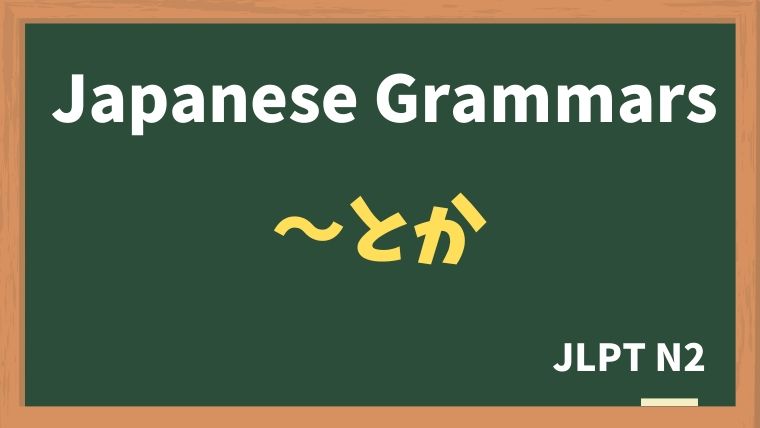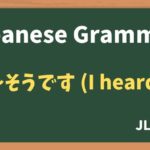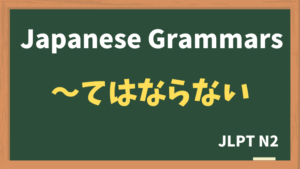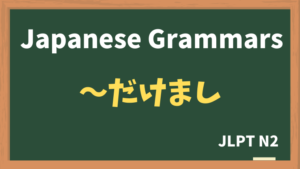
Explanation:〜とか / 〜とかで・・・
fa-check-circleMeaning
“〜そうです”
Used to convey information that the speaker has heard or received indirectly, often in an uncertain or vague manner. It translates to "I heard that..." or "It seems that..." in English, and it is used when providing a reason or explanation based on second-hand information or speculation.
fa-check-circleForm
V(plain form) + とかで
イA + とか
ナAだ+ とか
Nだ + とか
fa-check-circlePoints
- Hearsay: This structure implies that the speaker is relaying information they have heard from someone else, without having direct knowledge.
- Uncertainty: The information is not definite and is often relayed with some level of uncertainty.
- Casual Speech: Commonly used in informal conversations to explain a situation or give a reason.
fa-check-circleJLPT Level
N2
Sample sentenes
トムさんは体調が悪いとかで、今日は休むそうです。
I heard that Tom is feeling unwell, so he’s taking the day off.
事故があったとかで、今電車が止まってるみたい。
I heard there was an accident, so it seems the train is stopped right now.
トムさんとアンナさんは来年結婚するとか。いいなあ、僕もそろそろ結婚相手を見つけないと。
I heard that Tom and Anna are getting married next year. That's nice; I should also find a partner to marry soon.
マイケルさん、来月で会社を辞めて国へ帰るとか。寂しくなるね。
I heard that Michael is quitting the company and returning to his country next month. It's going to be lonely without him.
彼は旅行に行くとかで、来週は会えないらしいです。
I heard he is going on a trip, so it seems we can't meet next week.







